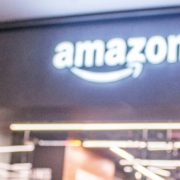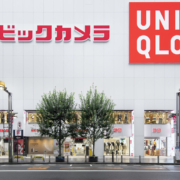The Success Story of Convenience Bee – Cashierless convenience store in China
The big Tech Players
China’s technology development has raised much awareness in recent years. Big tech icons like Taobao, Tencent, or JD had their fair share in the market. They have been very experimental with opening Cashierless stores. However, few of them went through the test of time.
The new Kids on the Block
Convenience Bee (BianLiFeng in Chinese), a Cashierless convenience store, wrote a different story of its own. It was founded in Beijing at the end of 2016 and opened four shops simultaneously in 2017. Till today, Convenience Bee has more than 2000 stores in 25 cities.
In China, Japanese convenience stores like Family Mart, Lawson, or 7-Eleven dominate the market for quite a long time. They are famous for their 24hr opening time, friendly service, and clean layout. Unlike the traditional supermarkets, they provide a hot snack roast near the counter.
Convenience Bee
Convenience Bee has all that Japanese feel as a convenience store. Additionally, it upgrades the business with all the Cashierless technologies. Like Amazon Go, Convenience Bee has its own App. Customers come inside the store by scanning the code in the App. Cameras and sensors detect what the customers take. Next to the warm food counter, there is an LCD screen for customers to place orders. The employee behind the counter will prepare the food accordingly. In the end, you scan your phone, pay, and leave.
When AI manages a Store
Convenience stores are a mature market in China. For sure, Cashierless technology increases customer satisfaction by reducing the checkout waiting time. But more importantly, it also reduces the operating costs for the store. Most operational decisions from Convenience Bee are made by AI. The system analyzes the store and does the product order every day automatically. Prices are updated based on market factors and user behavior.
Based on demand and supply, electronic price tags update the price in real-time. In a conventional store, training a store manager takes two years. Yet in Convenience Bee it only takes one month. A store manager makes no more decisions related to sales and profits. AI does all that parts. The manager only needs to implement changes according to the system.
What’s next?
Convenience Bee has expanded rapidly. In 2018, it got the first funding from Tencent for around $300 million. In 2020, the funding raised up to $1.5 billion from big-name investors. It looks promising with the development.
Still, it is a business model that burns money fast. What does the future hold? Only time can tell.







